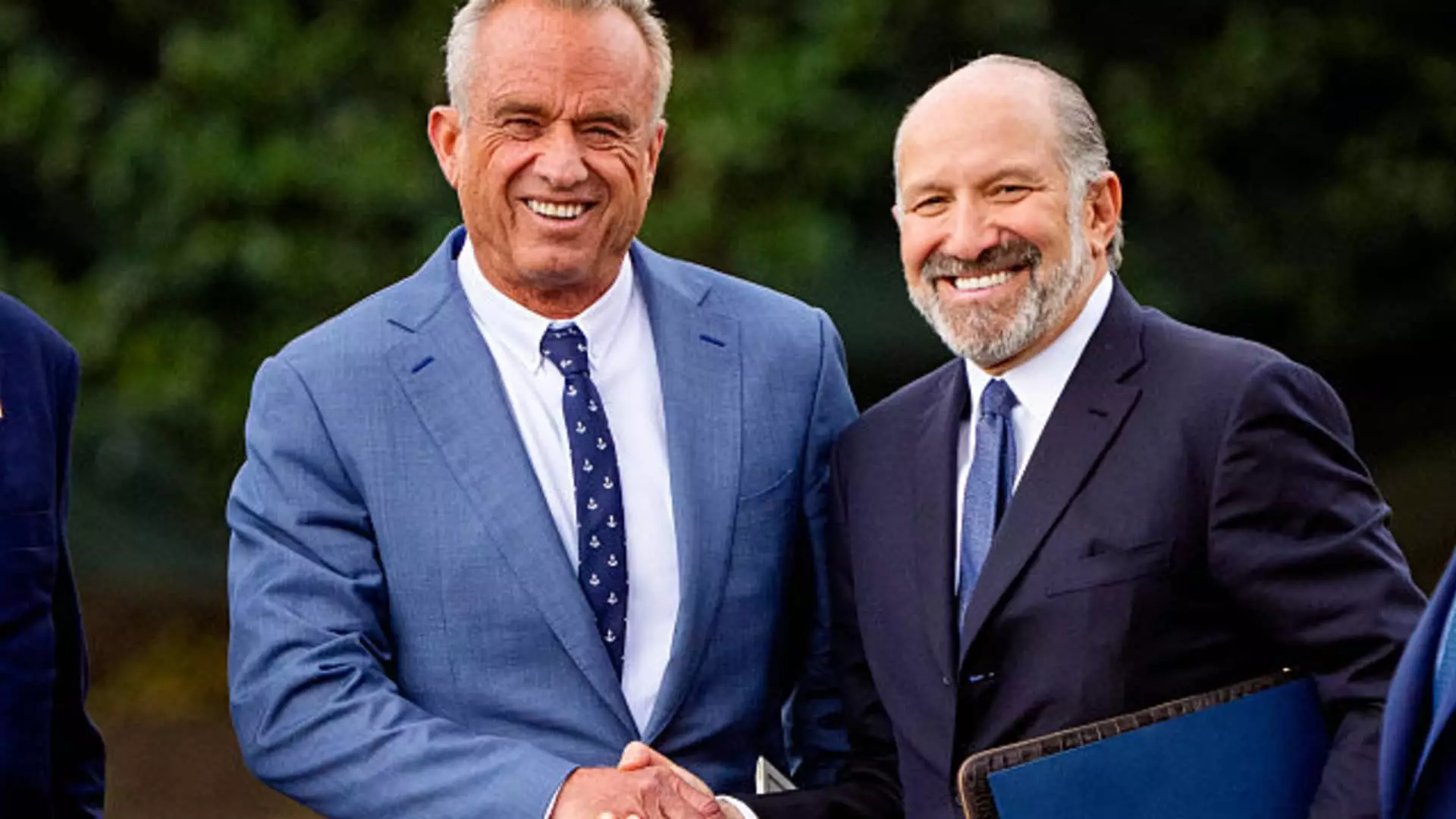When it was announced that Robert F. Kennedy Jr., a prominent anti-vaccine advocate, would play a role at the Department of Health and Human Services (HHS), many were justifiably concerned. A recent report from analysts at Cantor Fitzgerald articulated what countless public health professionals have feared: Kennedy is grossly unqualified to lead an agency responsible for safeguarding the health of millions of Americans. The implications of having someone who promotes misinformation about vaccines and public health are deeply concerning, especially in a nation where vaccine hesitancy has already spurred outbreaks of preventable diseases like measles.
Kennedy has taken quite a controversial stance, even rejecting the established significance of vaccinations that have been proven to save lives. His promotion of alternative treatments to mitigate measles outbreaks only serves to undermine the trust in traditional healthcare systems and scientific consensus. The value of rigorous public health policy cannot be overstated, yet under Kennedy’s influence, the stakes are alarmingly high.
The Resignation That Sent a Message
One of the most telling signs of discontent within HHS came with the resignation of Peter Marks, the head of the FDA’s biologics division. His departure highlighted the fracture forming within governmental health institutions and was a direct protest against Kennedy’s scientifically unfounded views. The corresponding market reaction, with shares of vaccine manufacturers like Moderna and Novavax plunging, signals a notable concern within the biotech industry about the potential ramifications of Kennedy’s policies.
The analysts at Cantor Fitzgerald did not mince words: they argued that having someone with a clear anti-science agenda at the helm of HHS is fundamentally at odds with the agency’s mission. Their assertion digs deeper than financial markets; it’s a moral and ethical question regarding who should lead our health policies. As the stakes continue to rise in terms of public health, it becomes crucial to hold agencies accountable for their leadership choices.
The Dangers of Misinformation
The CDC’s investigation into long-debunked claims linking vaccines to autism, spearheaded by a researcher known for spreading false information, raises red flags about the agenda being pushed within HHS. Such actions not only further propagate baseless conspiracy theories but also erode public confidence in established healthcare practices. The consequences can be tragic; we have already witnessed preventable deaths due to vaccine-preventable diseases—a direct outcome of allowing dangerous narratives to persist unchecked.
Kennedy’s views offer a dual threat: they not only challenge scientific consensus but also create a dangerous landscape where individuals are misled to believe that personal choice trumps the collective well-being of society. Phrases like “giving individuals the freedom to choose” serve as buzzwords for an anti-vaccination agenda that can, and does, lead to loss of life. The quick dismissal of proven vaccines in favor of unverified alternatives reinforces the skepticism that prevents communities from achieving herd immunity.
The Real Cost of Anti-Science Sentiment
As analysts pointed out, the primary issue here extends well beyond stock valuations or financial ramifications; it is about public health itself. The battle against misinformation has raged for years, but Kennedy’s position could accelerate its proliferation. The framing of vaccines as optional rather than essential is not just a temporary setback; it represents a fundamental shift in how health policy could be construed moving forward.
It’s easy to dismiss the anti-vaccine movement as fringe, but its influence has grown dangerously significant, particularly among vulnerable populations. Washington’s collaboration with those who amplify these ideas, such as Kennedy, poses an undeniable threat to the progress made in public health. When such a prominent figure becomes a voice of authority, it could potentially shape future policies in ways that jeopardize the health of generations.
Where Do We Go from Here?
Health policy needs to be grounded in science, evidence, and a commitment to saving lives. With individuals like Kennedy in positions of influence, those foundations are at risk. Not only do we need to scrutinize individuals appointed to positions of power within HHS, but we must also actively counter the narratives that undermine public health initiatives. As citizens, stakeholders, and advocates for science, we must remain vigilant against the tide of misinformation and maintain an unwavering commitment to facts and evidence in health policymaking.

